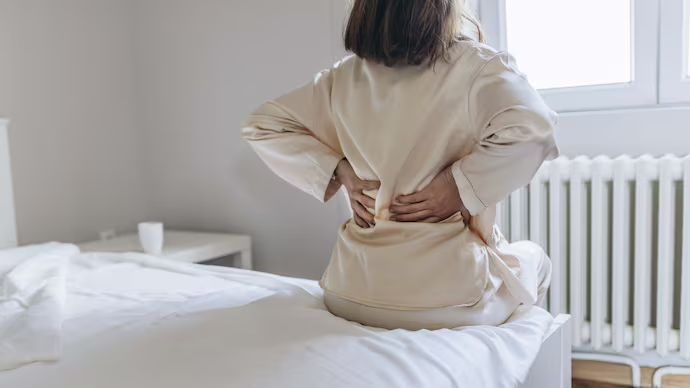We don’t always give the things we carry every day much thought, whether it’s a purse, a backpack, or a briefcase. Still, these items that seem harmless can have a big effect on our back health. Bad habits with bags, like carrying heavy things on one side or not standing up straight, can cause long-term pain and trouble. If you have back pain that won’t go away, you might want to look more closely at your daily habits, especially the way you carry your bag.
The Impact of Uneven Weight Distribution
One of the main causes of back pain from bags is the uneven weight distribution. When you carry a bag on one shoulder, for example, your body compensates by tilting to one side, which puts uneven pressure on your spine. Over time, this can tear muscles, throw off your spine, and even irritate your nerves. If your bag is too heavy, it forces your muscles to work harder to maintain your posture, contributing to back pain.
Backpacks can be a better option for weight distribution since they evenly spread the load across both shoulders. However, if the straps are too tight, the weight may still cause strain on your back and shoulders. Additionally, carrying a backpack in a way that is too low or too high can also lead to poor posture and discomfort.
The Role of Posture in Back Pain
The way your back feels when you carry your bag depends a lot on how you stand. If you slouch while carrying a bag, for example, it can put more stress on your muscles and back. Your spine curves in a way that isn’t normal when you slouch, which puts more stress on your discs and nerves. Lower back, shoulder, and even neck pain can come from this.
To prevent back pain, it’s important to maintain good posture while carrying a bag. Keep your shoulders back and your spine straight. If you’re carrying a backpack, make sure it’s adjusted so that the weight is evenly distributed. Avoid carrying heavy bags for long periods without taking breaks to rest your muscles.
The Weight of Your Bag Matters
Another factor to consider is the weight of your bag. Many people tend to carry everything but the kitchen sink in their bags, which can quickly add up to an excessive load. Heavy bags put undue stress on your muscles and spine, leading to fatigue and discomfort. Ideally, a bag should weigh no more than 10% of your body weight.
If you find that your bag is getting too heavy, consider lightening the load by removing unnecessary items or switching to a lighter bag. If you need to carry heavy things, try to spread the weight out more evenly or use a moving bag to make your back less tired.
Choosing the Right Bag for Your Back
There are different kinds of bags. Some are made with practical features that make them easier on the back, while others can make it hurt more. It is important to pick a bag that fits your wants and helps your back when you’re carrying it.
One way to help spread the weight more widely is to choose a backpack with padded straps and a waist belt. If you have a shoulder bag, make sure to switch sides often so that one shoulder doesn’t get too heavy. Also, look for bags with padded sections to keep fragile things like laptops safe. These can also help keep the weight inside the bag balanced.
When to See a Back Specialist Near Me
If you’re experiencing chronic back pain or discomfort that you suspect may be caused by your bag, it’s important to consult with a healthcare professional. A back specialist near me can help assess your posture, identify the cause of your pain, and provide targeted treatment options. From physical therapy to posture correction exercises, a specialist can help you recover from back pain and prevent future discomfort.
Do not ignore the signs; if you have back, shoulder, or neck pain that does not go away, you may need to see an expert who can help you live a pain-free life.
Conclusion
Your daily habits, like how you carry your bag, can have a big effect on the health of your back. Being aware of how your weight is distributed, your stance, and the weight of your bag can help you avoid back pain and discomfort. If your pain doesn’t go away, don’t wait to see a back expert near me for professional help and advice. To avoid back pain tomorrow, take charge of your health today and change some of the things you do every day.

